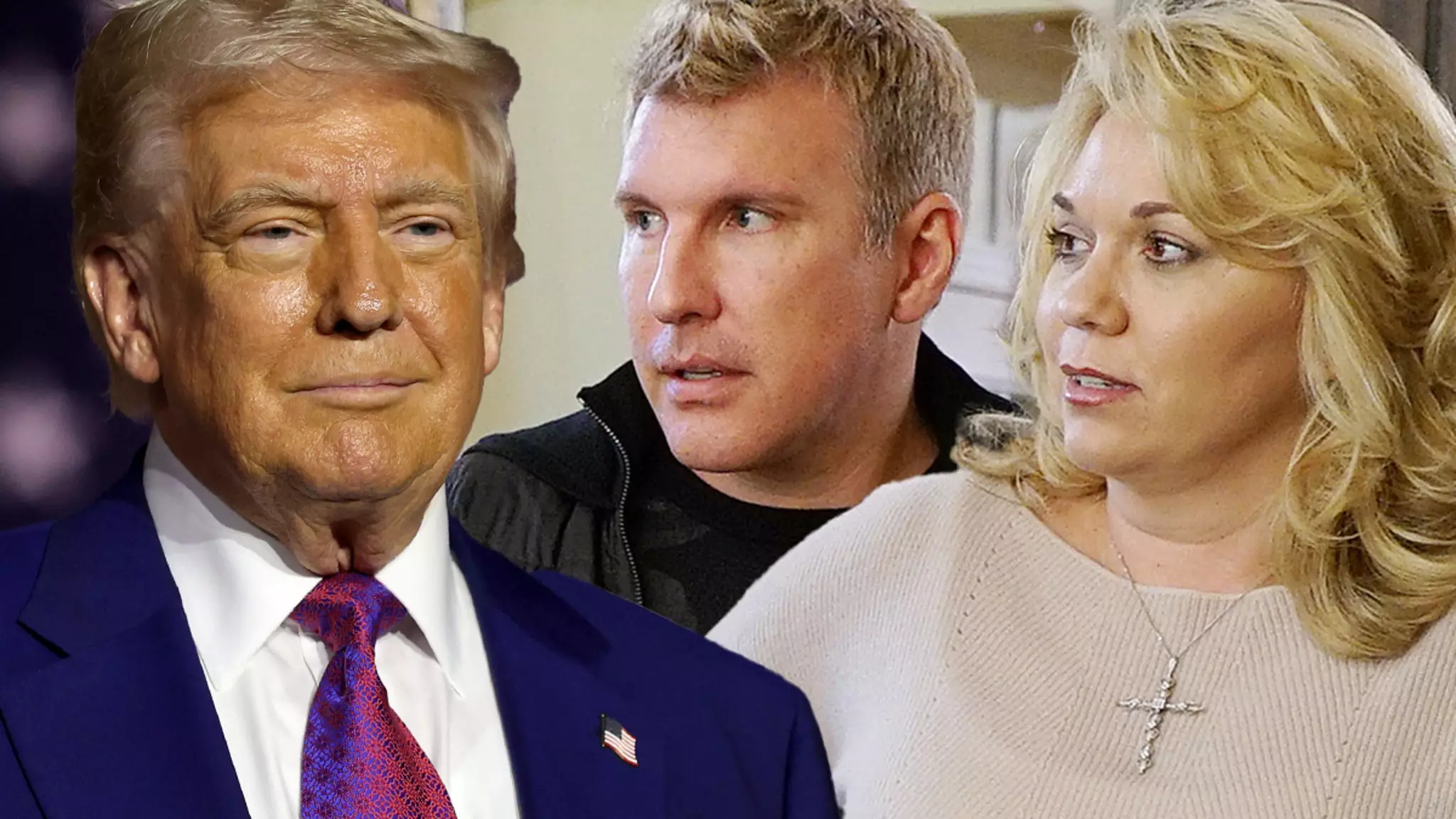The recent pardon granted to Todd and Julie Chrisley by former President Donald Trump has sparked a whirlwind of debate surrounding the implications of such a decision. After serving time for bank fraud and tax evasion, the couple is not only free but may also see the possibility of reclaiming millions of dollars in restitution. This situation raises critical questions about justice, privilege, and the intersection of celebrity with political power. When a federal pardon erases a significant financial obligation, we must ask: is this a true reflection of justice or merely an account of privilege wrapped in the cloak of politics?
The Giants of Reality Television Face a Fall from Grace
Todd and Julie Chrisley, famous for their reality television show “Chrisley Knows Best,” captured the hearts of many viewers while simultaneously constructing a façade of wealth and success. However, their saga took a dramatic turn when they were indicted in 2019 for serious financial crimes. The public’s perception of them shifted as they became embroiled in legal troubles, serving as a cautionary tale of how quickly fame can spiral into scandal. Their steep prison sentences—12 years for Todd and 7 for Julie—hinted at the severity of their crimes, making the subsequent pardon feel like a plot twist one could only find in a reality show.
A Potential Return to the Spotlight
The implications of the pardon extend beyond mere financial relief. As they re-emerge into society, the Chrisleys may very well leverage their newfound freedom for a resurgence in the entertainment industry. The media often gravitates toward sensational stories, and with the Chrisleys’ experience in front of the camera, it’s feasible to imagine them running a comeback series or capitalizing on their narrative to restore their brand. In an age where redemption stories often dominate public discourse, one must ponder whether this extraordinary turn of events will be met with enthusiasm or skepticism by fans and critics alike.
Legal and Ethical Implications of Pardon Powers
While the legalities of presidential pardons can shield individuals from the consequences of their actions, the ethical ramifications are more profound. The Chrisleys’ case raises the question of whether wealth and influence allow certain individuals to escape accountability. Critics argue that this decision undermines the justice system, suggesting an uneven application of the law based on celebrity status. If the intentions behind such pardons are indeed politically motivated—as implied by the Chrisleys’ attorney, who claims they were unfairly targeted for their conservative beliefs—then we are witnessing a dangerous precedent that jeopardizes the integrity of the judicial process.
The Intersection of Celebrity and Justice
The Chrisleys saga is not just a legal case; it reflects broader societal dynamics where celebrity and politics intersect. The involvement of figures like Trump illustrates how the prominent may navigate legal troubles that would normally ensnare average citizens. As society grapples with concepts of fairness and accountability, we must reflect on how high-profile individuals wield their power and how that power shapes the very fabric of justice. The Chrisleys’ return to freedom may excite fans, but it also demands introspection on the values we uphold in a system purporting to deliver equality before the law.

